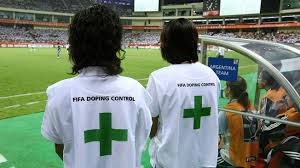November 22 – With just days to go until the much-trumpeted draw in Moscow on December 1, the spectre of doping continues to hang over 2018 World Cup hosts Russia and their main organiser Vitaly Mutko.
According to the BBC, FIFA says it has been speaking to Canadian law professor Dr Richard McLaren whose explosive report into state-sponsored doping in Russian sport rocked the country.
In his report, McLaren listed 33 footballers and FIFA told the BBC it has been in touch with McLaren at “several stages” of its own investigation.
McLaren was commissioned by the World Anti-Doping Agency (Wada) to look into allegations of Russia’s conduct and subsequently produced his findings last year.
“FIFA works in close collaboration with Wada and has been in contact with Professor McLaren exploring every possible avenue,” a FIFA spokesperson told the BBC.
“Of all the players mentioned in the McLaren reports, two Under-20 female players had already been sanctioned by the Russian authorities,” added the FIFA spokesperson. “For all the others it has so far not been possible to demonstrate any anti-doping rule violation, but investigations remain open.
“Should there be enough evidence to demonstrate an anti-doping rule violation by any athlete, FIFA would impose the appropriate sanction in line with its clear zero tolerance policy with regards to doping in football.”
Not surprisingly, the Russian news agency Tass took a different stance, focussing on the fact that FIFA has not yet discovered any violations of anti-doping rules by Russian footballers.
Many of Tass’ quotes are the same as the BBC’s but the agency’s interpretation is different. “FIFA has undertaken comprehensive actions to identify potential anti-doping rule violations, including retesting of available samples,” a FIFA spokesperson told TASS.
“For the FIFA Confederations Cup played in Russia, every participating player was tested through blood and urine in unannounced controls and further systematic tests were performed at every match,” the spokesperson added. “The same procedure applied to the 2014 FIFA World Cup, where all participating players – including all members of the Russian squad – underwent pre-competition and post-match tests, all of which resulted negative.”
Contact the writer of this story at moc.l1751338585labto1751338585ofdlr1751338585owedi1751338585sni@w1751338585ahsra1751338585w.wer1751338585dna1751338585

